Guildford pub bomb family demands Hillsborough Law
- Published
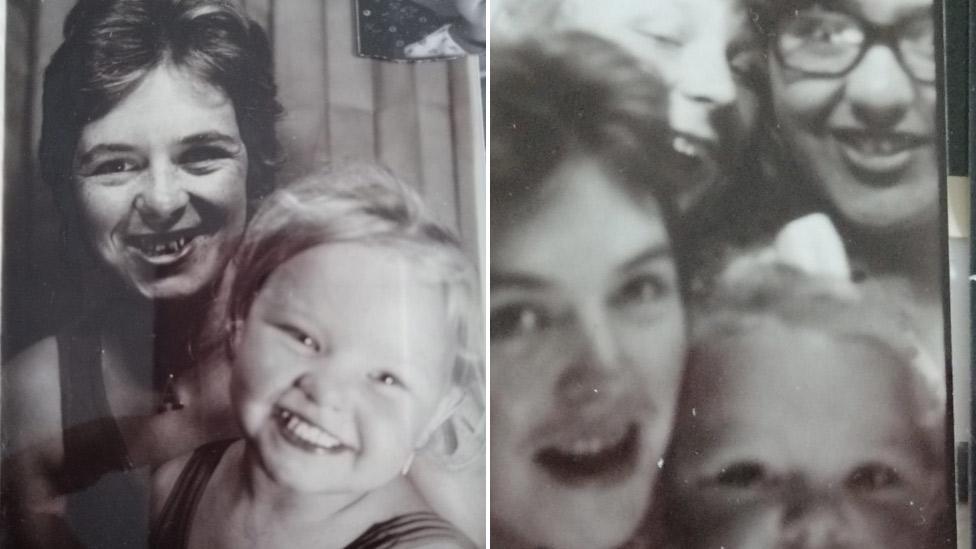
Cassandra Hamilton released pictures showing Ann and Cassandra (left) and the four siblings, Frank, Marie, Cassandra and Ann, clockwise (right)
The sister of a soldier who died in the 1974 IRA Guildford pub bombs has called for the immediate implementation of The Hillsborough Law after her request for legal aid was again refused.
Cassandra Hamilton, sister of soldier Ann Hamilton, wants her lawyers, KRW Law and Brenda Campbell QC, at a resumed inquest but funding was denied.
The Hillsborough Law calls for fairness for bereaved families, including funds.
The government said the coroner could ask questions on the family's behalf.
Surrey coroner Richard Travers is expected to confirm his inquest scope, external and make a decision on whether to have a jury at a pre-inquest review on Friday, but the Hamilton family will not be represented.
Two police forces, the Ministry of Defence (MoD) and the coroner have legal representation, but the Hamilton family do not. Both the coroner and Surrey Police have backed Ms Hamilton's calls for funding.

Caroline Slater, 18, Ann Hamilton, 19, William Forsyth, 18, John Hunter, 17, and plasterer Paul Craig, 21, died in the first explosion at the Horse and Groom
Five people died and 65 were injured in bombs at two pubs on 5 October 1974. The IRA's so-called Balcombe Street active service unit admitted responsibility in 1976 after the Guildford Four had been wrongly convicted.
The Four were eventually released in 1989 after serving 15 years in jail in what became one of Britain's biggest miscarriages of justice, but no-one else was prosecuted.

Wrongly-convicted Gerry Conlon, Paddy Armstrong, Paul Hill and Carole Richardson served 15 years in jail
Ms Hamilton said: "We cannot effectively participate at the inquest into the murder of our sister Ann without independent legal representation - and on the same terms as the MoD and the police. The coroner and Surrey Police recognise this - why not the Legal Aid Agency (LAA)?
"Friday is important because it is about the scope of the inquest but, again, we and KRW cannot be there.
"We call for the immediate implementation of the Hillsborough Law."
She added: "Why do other people get legal aid - but we can't for a British soldier?"
'Insignificant'
She has made a plea to the coroner to widen the scope of his inquest and called for a jury.
Ms Hamilton said police had questions to answer about how the IRA unit's confessions were dealt with, adding: "If they admitted it, why were they never arrested or questioned?"
A Surrey Police spokeswoman said: "Surrey Police is conducting an assessment of all the material held to consider whether re-investigation is a viable option. That assessment remains ongoing."
The police spokeswoman said the issue raised "was also addressed in the findings of the Sir John May report, an independent report commissioned by the Home Office in 1989".
The inquiry by Sir John, a retired judge, ran from 1989 to 1994, when it published its final report, external. It looked at the wrongful convictions of the Guildford Four and Maguire Seven.
However, Ms Hamilton said Sir John had not answered the family's questions.
Ms Hamilton said she believed the deaths of soldiers in Guildford had been overlooked, compared with the deaths of civilians in pub bombs in Birmingham the same year.
"What makes Guildford so insignificant?" she asked.
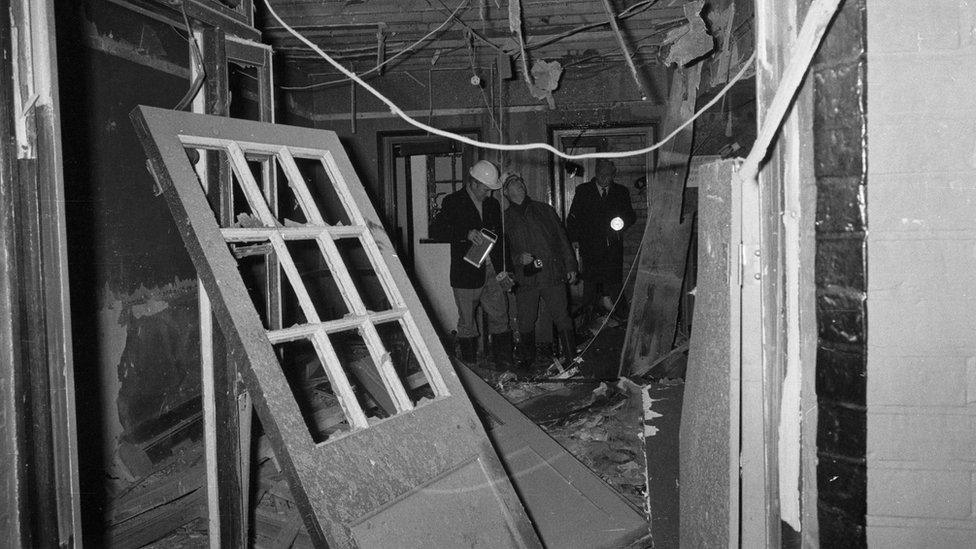
The bombs killed five people, injured 65 and led to one of Britain's biggest miscarriages of justice
Christopher Stanley, from KRW Law, said the Hamilton family had been refused legal aid even though they were financially eligible as the LAA saw "no wider public interest at this stage".
He said the LAA had drawn differences between Birmingham and Guildford and found there was "no issue at this stage of preventability, which was an issue in Birmingham".
Mr Stanley claimed civil servants at the LAA were making decisions based on their interpretations of material they had not seen, which was not their role.
A full inquest is expected to be held this summer.
Last week, calls were renewed to implement the Hillsborough Law. The government said it would engage with bereaved families.
One of the lawyers who represented the Hillsborough families, Edward Fitzgerald QC, said it was of paramount importance in cases such as the Guildford bombings and in Hillsborough that families of the bereaved were given legal aid.
He said: "Experience has shown the exclusion of families from legal representation can result in great injustice."
A spokeswoman for the Ministry of Justice said: "Our thoughts are with the families of the victims of the Guildford pub bombings.
"They will be fully supported by the coroner who can ask questions on their behalf to help ensure they get the answers they need."
The department said its review of legal aid showed legal representation was "not necessary in the vast majority of inquests" but was available in exceptional cases where there was a significant wider public interest.

Follow BBC South East on Facebook, external, on Twitter, external, and on Instagram, external. Send your story ideas to southeasttoday@bbc.co.uk.
Related topics
- Published7 January 2022
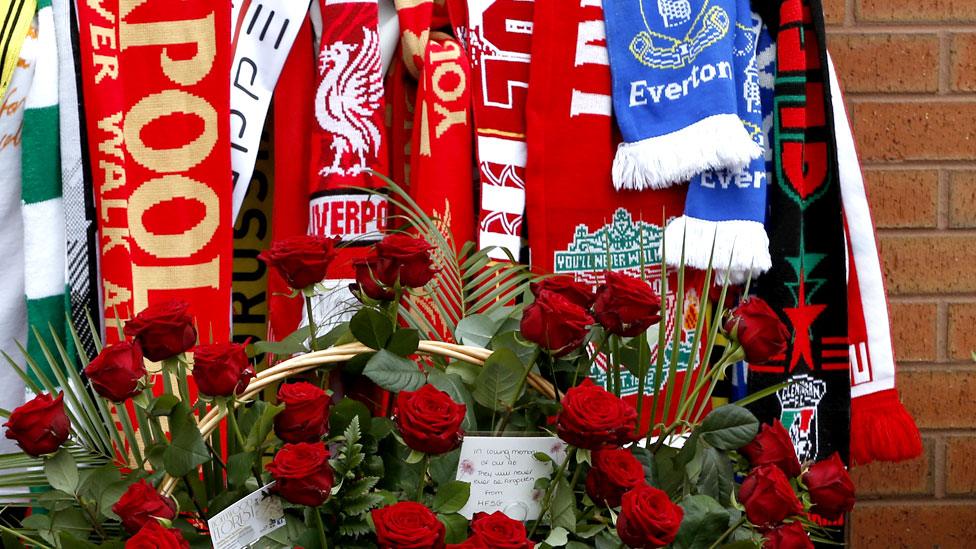
- Published5 October 2021

- Published16 July 2021
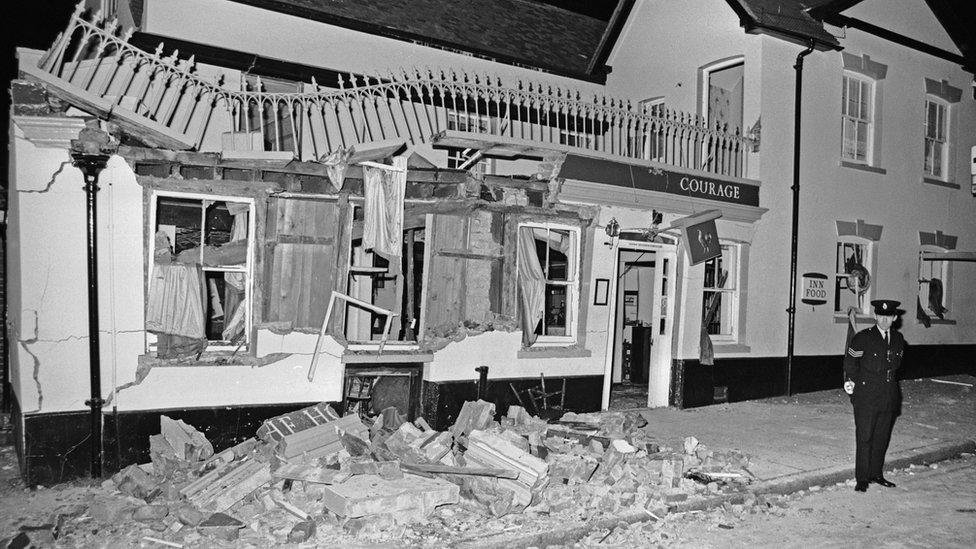
- Published8 July 2021
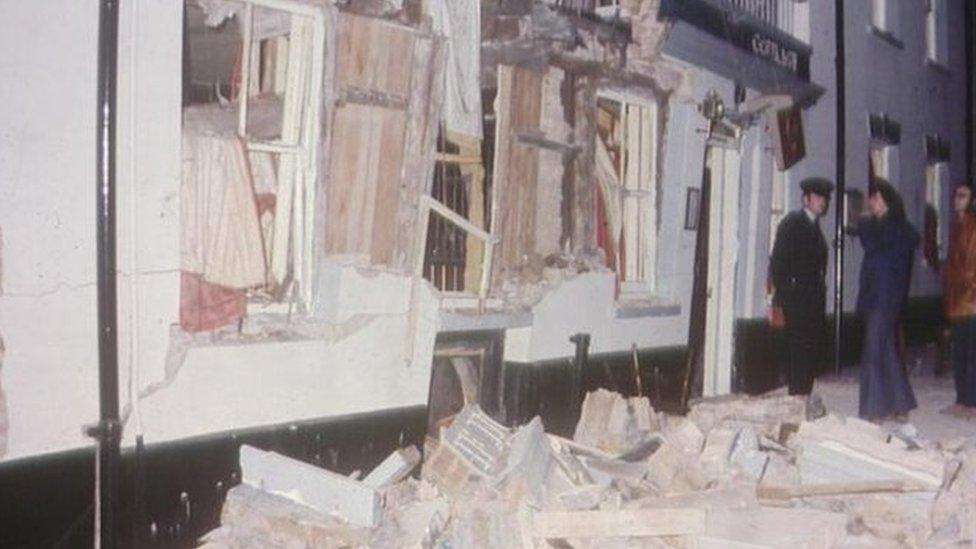
- Published31 December 2019
